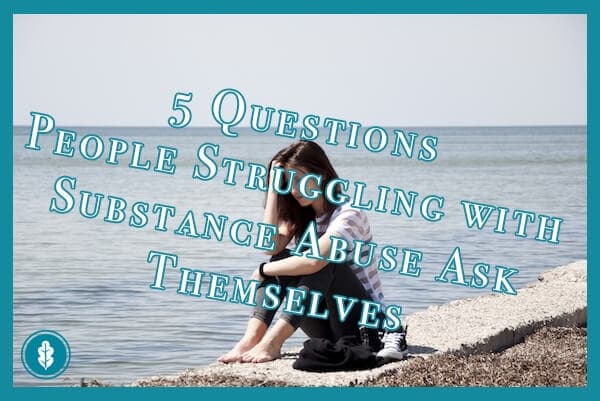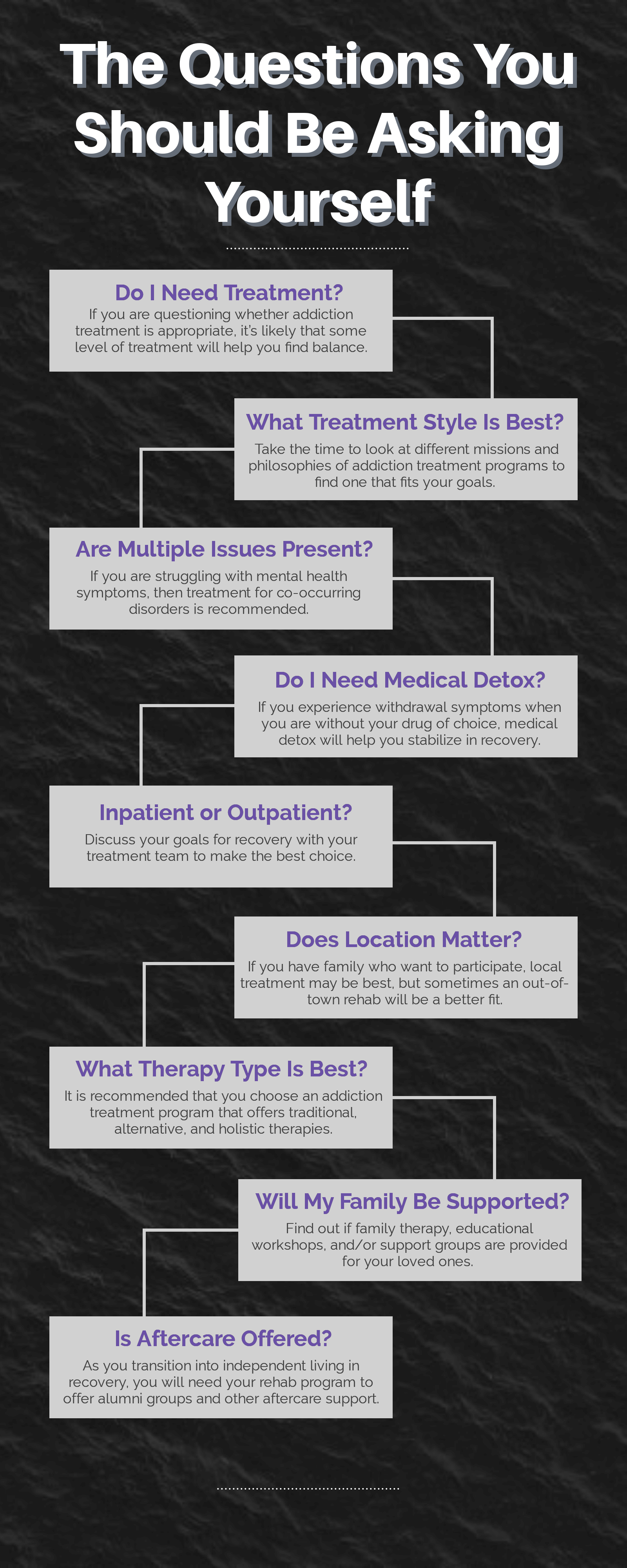5 Questions People Struggling with Drug Addiction Ask Themselves
If you are wondering whether or not you have a problem with drugs or alcohol, you are probably doing a little soul searching and asking yourself some tough questions about your habits and behaviors. Most people attempt to self-identify a problem with substances by way of comparison with others. For example, if someone you respect is out at the club every night you are, or if others in your circle of friends drink or get high as often as you do, you may feel like your level of substance use is “normal” by comparison.

However, “normal use” of substances is subjective, so if you are genuinely in crisis about whether or not you may have a substance use disorder, the following are questions that no one with a “normal” relationship with alcohol or any substance would ever ask themselves.
- Is blacking out normal?
No, it’s not. In fact, blacking out is so abnormal that no one who doesn’t have a drinking problem would ever ask that question. If you are drinking so much that you regularly lose hours of time or end up in places with no clear idea of how you got there or why, it’s a problem. In fact, if it happened to most people even one time, they would likely do everything in their power to make sure it never happened again. If it’s happening to you so often that you are asking whether or not it’s normal, it’s time to get treatment.
- If I can avoid drugs or alcohol for a week (or two weeks or a month), I don’t have a problem, right?
It depends. Do you crave drugs or alcohol during your allotted sober days, feel agitated and uncomfortable, and focus heavily on the date you have given yourself when you can return to drinking and drug use? If so, then no, being able to “white knuckle” it and stay sober through gritted teeth for any period of time does not indicate that you are living a balanced life characterized by a “normal” relationship with substances. Instead, the fact that you feel like it is necessary to prove that you can stop using substances periodically demonstrates unhealthy use of drugs and alcohol.

- How early in the day can I drink or get high before it’s a problem?
Obviously, if you’re trying to “bend the rules” of what you know to be a safe or at least socially acceptable use of drugs or alcohol, then somewhere deep inside you recognize that you are making choices that are not prioritizing your health. If you’re trying to get away with drinking or getting high early in the day, during work, before driving, or while watching kids or taking care of dependent family members, or you are staying up so late due to intoxication that you are unable to function in any of these capacities, it’s a problem.
- Where did I leave my kit, stash, or drugs?
If you have a little bag, box, or place to stash your drugs, or if you have hiding places around the house for alcohol and other substances, it can be a sign of a problem.
- No one knows I get high, right?
If you are drinking and using drugs frequently enough that any of the above is an issue for you, it is likely that you are not keeping it much of a secret. Even if you operate under the adage that “they can’t prove it’s true” or feel as if you have successfully given a plausible story for why you were late, “out of it,” broke, or otherwise unable to maintain your commitments, it becomes clear over time that you’re lying.
If you feel like you have something to hide when it comes to your level of drug or alcohol use and are worried that you are harming your body, friendships, career opportunities, and/or mental health, then it’s time to explore the options available to you in treatment.
Are you ready to move past the limitations of substance use and abuse?
If you or someone you love is struggling with addiction and are ready to start discussing treatment options, call us today at . There, a compassionate treatment navigator can help you create a plan to attend treatment at one of our rehab facilities across the United States. River Oaks, American Addiction Centers’ Tampa addiction treatment center, may be a good fit for you. Call us today to find out more.